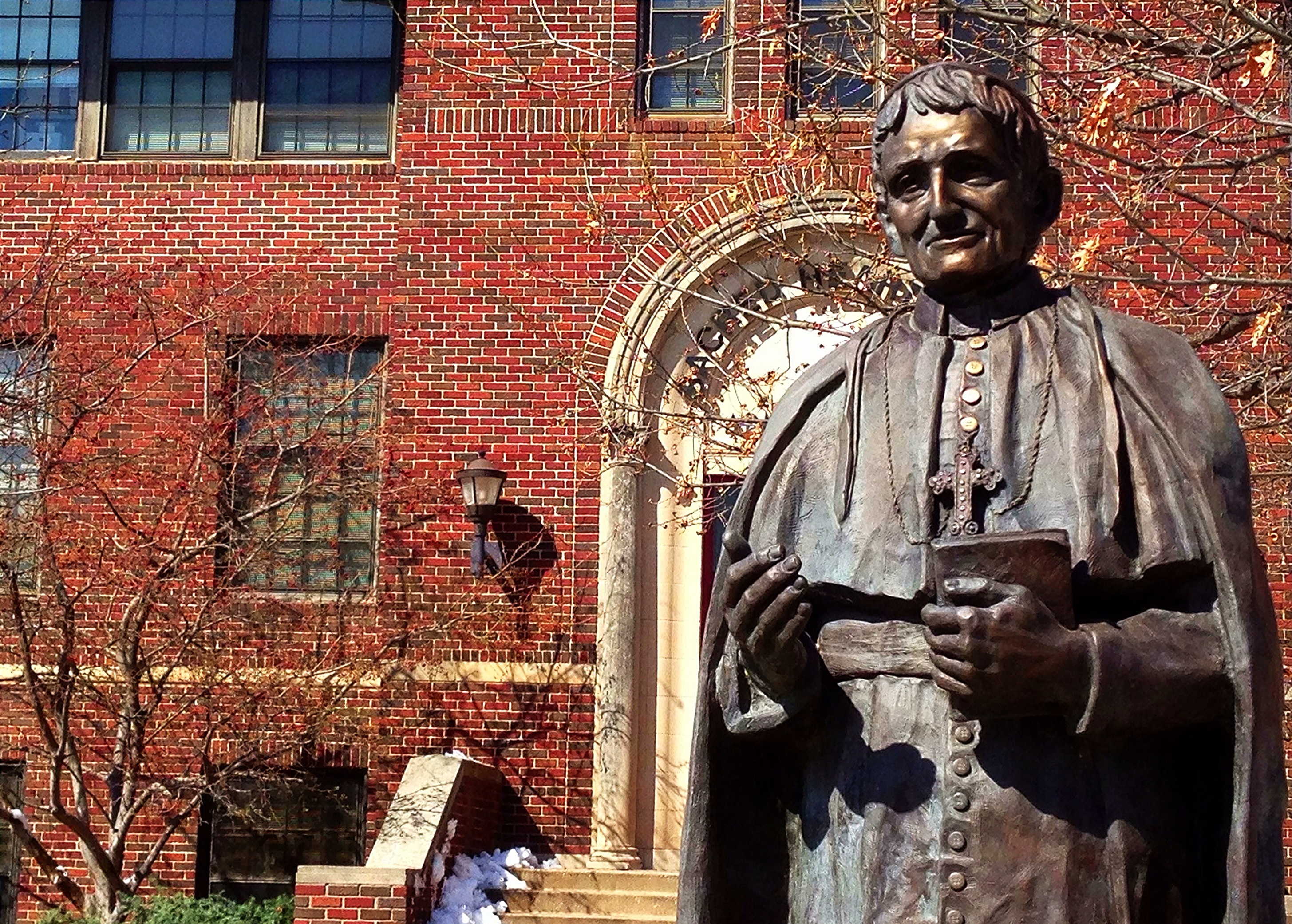WICHITA, KS – The Liberal Arts are not so much a set of disciplines to be studied as they are a set of habits to be practiced. This is the central point and main theme around which my visit to Newman University in Wichita, KS is organized.
These habits include the capacity to communicate effectively, to appreciate diversity, to perceive globally, and to respond to complexity with nuance.
But the cardinal virtue of the liberal arts is ethical imagination: the disposition to envision new possibilities of more just, enriching relationships beyond existing realities. This involves the capacity to discern and understand perspectives other than our own.
During my time at Newman, I’ve attempted to put these values into practice in three venues: a workshop on teaching and learning with technology, an interactive keynote address/performance entitled “Liberal Arts and the Ethical Imagination,” and a workshop on using technology to cultivate communities of education in academic and administrative contexts. Digital artifacts from each are curated below.
Teaching and Learning with Technology
This prezi outlines the affordances and limitations of using blogging and podcasting to blur the boundaries between the classroom and the wider public.
Interactive Keynote: Liberal Arts and the Ethical Imagination
This interactive lecture at the Gerber Institute at Newman University draws upon the classical idea that an education in the liberal arts is integral to living a rich and fulfilling life. With reference to Ancient Greek Philosophy and Tragedy, I demonstrate how the capacity to imagine one’s way into the position of another is the cardinal virtue of a liberal arts education. Using Twitter to empower the active participation of the audience during the lecture, I hope to begin to cultivate the ethical imagination I argue is central to living a good life in community with others.
Here is the curated Storify. It will develop further after the lecture itself as I curate tweets from the discussion.
Workshop on Using Technology to Cultivate Educational Community
This Prezi demonstrates how we have used social media in the Liberal Arts Undergraduate Studies (@LAUSatPSU) to empower students to give voice to their liberal arts undergraduate experience.


enjoyed watching the lecture on video. and the attempt to work ancient ideas and ideals into prevailing patterns of thinking and valuing was a reminder of a great philosopher like randall. the liberal arts education as is currently practiced appear to neglect classical, medieval and renaissance studies, and if it be so, could it be that the poverty of the ethical imagination in the modern life largely a product of the scientism (contrasted with the spirit of science) of the social sciences dominating the liberal arts education?
Chuk, I really appreciate your comment here about the importance of ancient ideas and ideals. One thing that struck me during my time at Newman is how important it is for those of us deeply engaged with ancient scholarship to also be thoughtfully engaged with new modes of communication afforded us by social media.
I am glad too that you mention Randall, a favorite of mine, and someone who I engage deeply in my book, Aristotle on the Nature of Truth.
I would like to hear more about your distinction between scientism and the spirit of science.
the borrowed distinction alluded to can best be described thus: scientism is about getting highly excited about conclusions of science at any given moment, and running with those conclusions which often results in throwing overboard baby with the bath water. the criticism of this habit does not make knowledge a problem, instead it inspires or ought to inspire what randall in his hellenistic ways refers to as the scientific skepticism of the experimental temper of mind – the ability to act knowingly that one is acting on an hypothesis. to that end, the education of reason in the modern life appears to be failing. change is inevitable. but in this changing world, what is surely needed are educated minds keen on understanding rather than on changing or fighting change.
I appreciate the shift emphasis away from merely knowing (and all too often forgetting after the exam) about to focusing on knowing by doing (cultivating habits) but think that it would be important to directly engage some of the developing research on cognitive-biases ( http://en.wikipedia.org/wiki/List_of_cognitive_bi… ) and perhaps a bit of cross-disciplinary work along these lines with folks in the social sciences and education may be in order?